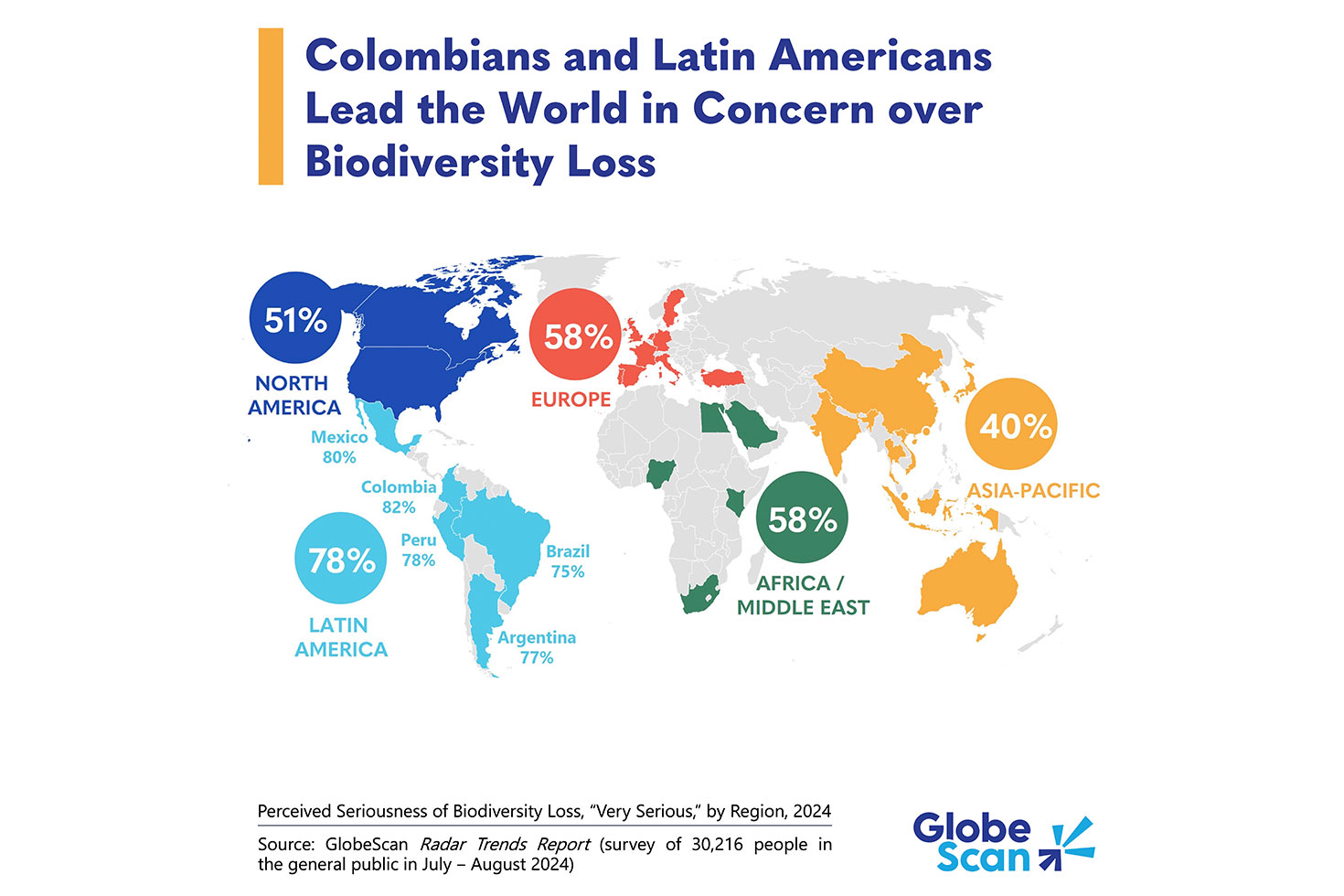
As international enterprise leaders, policymakers and civil society representatives collect in Cali, Colombia (Oct. 21 to Nov. 1) for the 2024 United Nations biodiversity summit (COP16), our newest Radar international public opinion polling outcomes spotlight the significantly excessive stage of concern about biodiversity loss amongst respondents within the Latin American nations surveyed — particularly in Colombia.
GlobeScan’s current knowledge exhibits that almost 8 in 10 individuals in Latin America consider that the lack of animal and plant species is a “very critical” drawback in comparison with simply over half in North America (U.S. and Canada) and almost 6 in 10 in Europe in addition to in Africa and the Center East, whereas solely 4 in 10 within the Asia-Pacific area say that biodiversity loss is of nice concern to them. Colombians are essentially the most involved of the 31 nations and territories surveyed, with 82 % calling the lack of animal and plant species “very critical,” adopted by Mexicans at 80 %.
What does this imply?
Colombia is without doubt one of the most biodiverse nations on this planet, the place deforestation and different threats to its biodiversity are linked to will increase in social inequality, inner armed battle and the unlawful drug commerce, amongst different points. As with local weather change, these outcomes once more present that those that are extra susceptible to its results additionally have a tendency to precise essentially the most concern.
Primarily based on a largely consultant on-line survey of over 30,000 individuals throughout 31 nations and territories, Radar attracts upon GlobeScan’s distinctive database of greater than twenty years of polling public opinion about individuals’s outlook towards societal actors and the problems affecting them.
Survey query: For every of the next doable international issues, please point out in case you see it as a really critical, considerably critical, not very critical, or by no means significant issue: The lack of animal and plant species
Supply: GlobeScan Radar Developments Report (survey of 30,216 individuals in most people in July-August 2024)